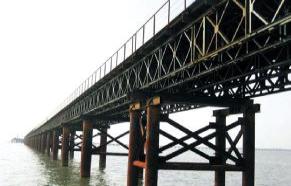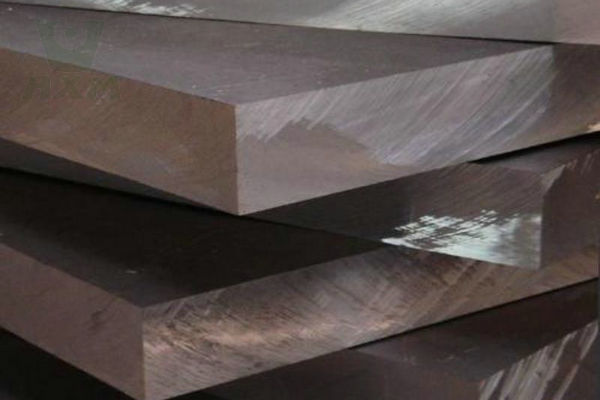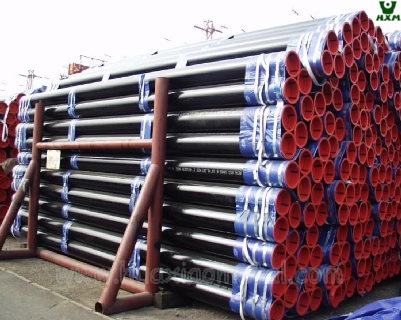In the field of modern engineering, the development of materials science has had a profound impact on the technological progress of various industries, and high strength steel, as one of the key materials, is increasingly receiving widespread attention and application. Its superior mechanical properties and diverse applications make it an indispensable part of engineering design. We are a Chinese steel supplier that has been providing high-strength steel for more than ten years.
This article will deeply explore the wide range of application fields and various types of high-strength steel, from the automotive industry to aerospace, from construction engineering to oil and gas extraction, and show them one by one. Importance and value of high strength steel in different fields. Through the elaboration of this article, readers will be able better to understand the role of high strength steel in various industries and have a more comprehensive understanding of its potential and development direction.
If there is anything you don’t understand, you can contact us directly!
What is the High Strength Steel?
High strength steel is a type of special steel with excellent mechanical properties, which plays an important role in the engineering field. Its main characteristics are high yield strength and tensile strength, usually with higher strength levels than ordinary carbon steel or low alloy steel. The development of this material has been driven by advanced smelting techniques and alloy design, allowing it to perform well in a variety of applications.
Applications of High Strength Steel
Automobile industry: High strength steel is widely used in automobile manufacturing to reduce body weight and improve crash safety.
Construction Engineering: Used in bridges, building structures and other projects that need to withstand large loads.
Aerospace: Structural components for aircraft and spacecraft need to be lightweight yet strong, and high-strength steel plays a key role in this.
Shipbuilding: Hull structures and ship equipment require corrosion resistance and high strength, so high-strength steel is common in shipbuilding.
Oil and gas extraction: used for oil well pipelines and other equipment operating in harsh environments.

Types of High Strength Steel
Carbon Steel:
Features: Carbon steel is a steel material containing a high proportion of carbon elements. By controlling the carbon content and heat treatment process, high-strength carbon steel of different strength levels can be obtained.
Application: Commonly used in automobile manufacturing, building structures and other fields, it has good processability and relatively low cost.
Alloy Steel:
Features: Alloy steel adds other alloying elements (such as chromium, nickel, molybdenum, etc.) to basic carbon steel to improve the properties of the steel, such as improving corrosion resistance, fatigue resistance, etc.
Application: Widely used in automotive parts, aerospace devices and other applications that require strength and durability.
Weathering Steel:
Features: Weathering steel has good weather resistance and can be used in the atmosphere for a long time without losing strength, mainly because the oxide layer formed on the surface can effectively prevent further oxidation.
Application: Commonly used in outdoor structures, bridges and other places that require long-term exposure to the natural environment.
High Strength Low Alloy Steel (HSLA):
Features: HSLA steel is a type of high-strength steel with a lower alloy content. In addition to carbon, it also contains other alloying elements, which can provide higher strength and durability than traditional carbon steel.
Application: Widely used in fields requiring lightweight and high strength such as automobile manufacturing and shipbuilding.
Austenitic Stainless Steel:
Features: Austenitic stainless steel has good corrosion resistance and can maintain excellent corrosion resistance under high-strength conditions.
Application: Commonly used in marine engineering, chemical equipment, and other occasions that require high corrosion resistance.
Summarize
As a key material, high-strength steel has shown great application potential and a wide range of application scenarios in the field of modern engineering. Through the discussion in this article, we can draw the following conclusions:
First of all, high strength steel has excellent mechanical properties, including high yield strength and tensile strength, and can meet the requirements for strength, durability and safety in engineering design.
Secondly, high-strength steel has important applications in many fields. In the automotive industry, it can reduce body weight and improve collision safety; in construction engineering, it can increase structural stability and load-bearing capacity; in the aerospace field, it can achieve lightweight design and improve flight performance.
In addition, different types of high-strength steel have their characteristics and applicable scenarios, such as carbon steel, alloy steel, weathering steel, HSLA, etc. Engineering designers can choose the most appropriate material type according to specific needs.
Finally, with the continuous development of engineering technology and the continuous improvement of material properties, the application prospects of high-strength steel will be broader. Through continuous research and innovation, high-strength steel will continue to provide reliable support for engineering design and manufacturing in various fields, promoting the progress and development of the engineering field.
To sum up, high-strength steel not only plays an important role in today’s engineering field but will continue to play a key role in the future, providing a solid foundation and reliable support for the realization of various engineering projects. If you need to buy high-strength steel, please contact us!







